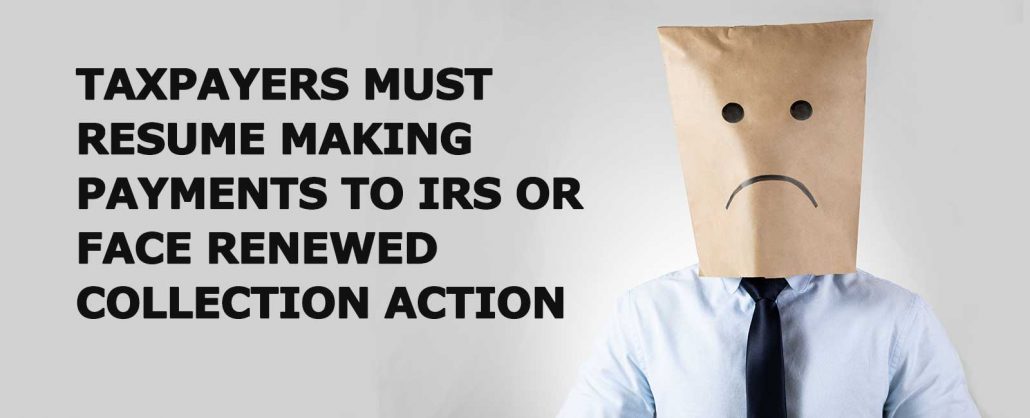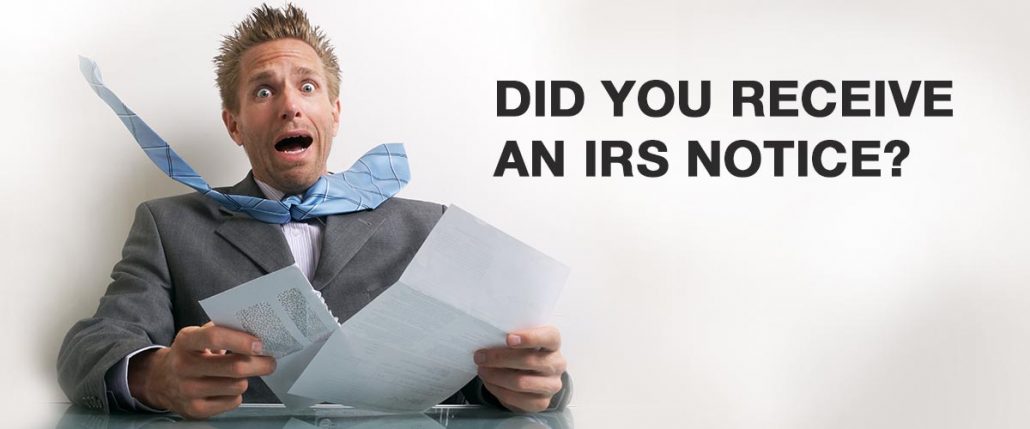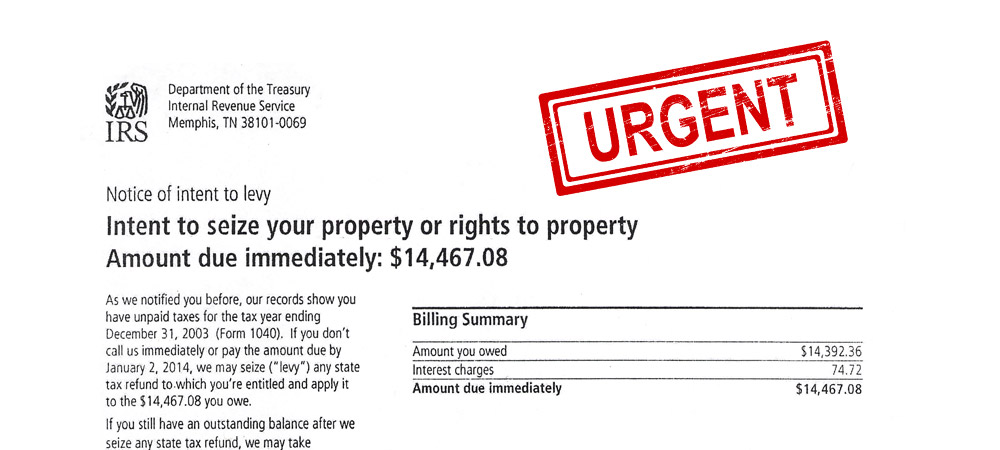Tax Liens And Levies
Tax levies are the way that the Internal Revenue Service gets your immediate attention. What they are saying is, We have tried to communicate with you but you have ignored us.
Levies are used to seize your wages (commonly referred as garnishment) and whatever other assets you have: Checking accounts, savings accounts, autos, stocks, bonds or anything else that you own. If you have more in the bank than you owe, the IRS will only take that amount to satisfy your liability, leaving the rest for you.
A levy is different from an IRS lien. A lien is a claim used as security for the tax debt, while an IRS levy actually takes the property to satisfy the tax debt. Not only can the IRS seize and sell assets that you hold, the IRS can also levy property that is yours but held by someone else (such as your wages, retirement accounts, dividends, bank accounts, licenses, rental income, accounts receivables, the cash loan value of your life insurance, or commissions).
Before the IRS can take any of these actions, the IRS must issue a “Final Notice of Intent to Levy and Notice of Your Right To a Hearing” to the taxpayer, allowing up to 30 days from the date of the Final Notice to pay in full or to find another solution.
If the IRS levies your state tax refund, you would receive a “Notice of Levy on Your State Tax Refund, Notice of Your Right to Hearing.” Ignoring these notices will only make matters worse.
If the IRS has filed a federal tax lien against your assets, we can analyze your situation to find the best course of action for you to avoid the levy. Once the 30 days have passed, the IRS does not have to give any further notice before seizing your assets, including your checking accounts, savings accounts, and your wages.
A timely filing within 30 days of the date on the Final Notice for a Collection Due Process hearing can stop the levy and allow us to discuss and resolve your case with an Appeals Officer. We may even be able to attain an offer in compromise.
Some of the issues on appeal may include:
- You paid all you owed before the IRS sent the levy notice,
- The IRS assessed the tax and sent the levy notice when you were in bankruptcy, and subject to the automatic stay during bankruptcy,
- The IRS made a procedural error in an assessment,
- The time to collect the tax (called the statute of limitations) expired before IRS sent the levy notice,
- You did not have an opportunity to dispute the assessed liability,
- You wish to discuss the collection options, or
- You wish to make a spousal defense.
At the conclusion of the hearing, the Office of Appeals will issue a determination. We would then have 30 days after the determination date to bring a lawsuit in Federal Court to contest the determination.
If you decide to do nothing or fail to timely file a request for a CDP Hearing, the levy will commence immediately and will end when:
- The levy is released,
- You pay your tax debt, or
- The time expires for legally collecting the tax.
If the IRS levies your bank account, your bank must hold funds you have on deposit, up to the amount you owe, for 21 days. This period allows the taxpayer time to solve any problems from the levy. After 21 days, the bank must send the money plus interest, if it applies, to the IRS. If the IRS made a mistake by levying your bank account and you incurred bank charges because of the erroneous levy, you may be entitled to a reimbursement from the IRS by filing a claim with the IRS within one year after your bank charged you the fee.
By engaging our services we can secure a temporary freeze on further collection activity, providing us with sufficient time to analyze your situation and determine the best course of action. For many taxpayers, this could lead to an Offer in Compromise.
For prompt evaluation of your case, we encourage you to contact us. You may also contact us using our toll-free number at 866.494.6829





 Follow
Follow Follow
Follow